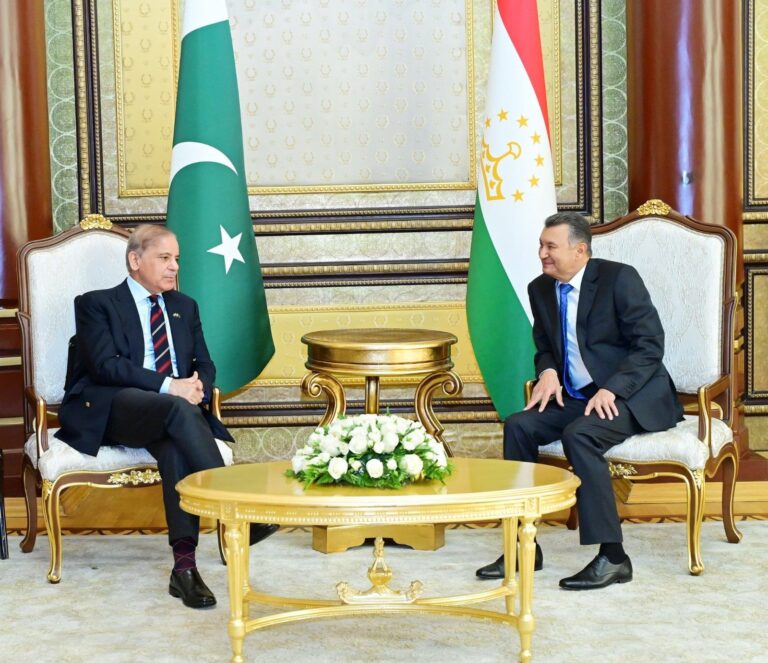Prime Minister Shehbaz Sharif has arrived in Tajikistan for a two-day official visit aimed at enhancing bilateral relations and addressing regional and environmental challenges. The visit, announced by the Prime Minister’s Office, signals Islamabad’s renewed diplomatic outreach in Central Asia.
On arrival at Dushanbe Airport on Thursday, the PM was warmly received by his Tajik counterpart, Prime Minister Kokhir Rasulzoda, along with other high-ranking Tajik officials including Deputy Foreign Minister Sharifzoda Farrukh Homiddin.
وزیرِ اعظم محمد شہباز شریف {@CMShehbaz} دو روزہ سرکاری دورے پر تاجکستان پہنچ گئے۔
دوشنبہ ائیرپورٹ پر تاجک وزیراعظم عزت مآب قاہر رسول زادہ نے وزیرِ اعظم کا پرتپاک استقبال کیا۔#PMShehbazInTajikistan 🇵🇰🇹🇯 pic.twitter.com/d6dbNmjNP1
— Government of Pakistan (@GovtofPakistan) May 29, 2025
The reception also included Tajikistan’s Ambassador to Pakistan, Yusuf Sharifzoda, and Pakistan’s Ambassador to Tajikistan, Muhammad Saeed Sarwar. He is accompanied by Information Minister Attaullah Tarar and Special Assistant to the Prime Minister Syed Tariq Fatemi.
Central to Premier Sharif’s visit are scheduled high-level talks with Tajik President Emomali Rahmon. The discussions are expected to cover a wide range of sectors including trade, energy, regional connectivity, and security cooperation.
The PM is also likely to acknowledge Tajikistan’s steadfast support for Pakistan amid recent regional tensions, particularly in the context of ongoing strains between Islamabad and New Delhi. He will also participate in a global conference on glacier preservation being hosted in Dushanbe.
In his address, he is expected to underscore the catastrophic effects of climate change on Pakistan—particularly in the Himalayan and Karakoram regions—and advocate for urgent international collaboration on environmental protection. He will reaffirm Pakistan’s “unwavering commitment” to preserving glaciers, a critical issue for the country’s future water security and ecological stability.
This visit not only reflects Islamabad’s strategic focus on Central Asia but also its desire to play a leading role in climate diplomacy.

